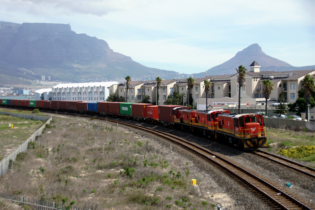The economic slowdown in China, the declining demand for mining commodities, dwindling consumer spending power and the drought have all negatively impacted container trade in South Africa, with both import and export markets declining year-on-year by 8% and 12% respectively.
This is according to Matthew Conroy, trade manager of Maersk Line Southern Africa – a member of Maersk Group, who says the 2016 Q1 Maersk Trade Report reveals that economic restraints and less demand for South Africa’s commodities have negatively impacted trade levels during the first quarter. He explains that the weakening import market is mostly related to the Asia market declining by 13%. “This trade lane represents about 45% of total imports into South Africa and is dominated by manufactured goods, which are on the decline due to lower consumer consumption in South Africa. ”Looking forward, we don’t expect import trade to improve drastically very soon as there are no clear signs of an economic recovery, which is ultimately what is required to fuel incremental consumer spend.”On a positive note, Conroy says that the smaller Middle East trade lane grew by approximately 10% during the first quarter of 2016. “This is largely related to a local sourcing change, where more retail products are being sourced from the Middle East and less from Asia.”
He says that the decline in exports is largely due to the drop in mining commodity demand and the drought. “Total dry exports have dropped by 14% over the last quarter, but within the larger Asia trade category, which is dominated by mining commodities, the market has dropped by 24%. Despite on-going stimuli from the Chinese authorities, the Chinese economy is still struggling. “The drought has also contributed to the overall decline in export trade as it has reduced the amount of animal feed and fruit exported.” Conroy says that export trade will, however, see a minor provisional improvement. “The mining sector in the second quarter is seeing a slight boost and thus, there should be an improvement on this quarter’s 14% drop in demand. However, this positive shift looks likely to be more of a restocking, as opposed to a structural change in global demand, and thus will not continue for the full year. The biggest opportunity for the South African economy continues to be exporting more manufactured goods, which the weak rand enables,” he concludes.






